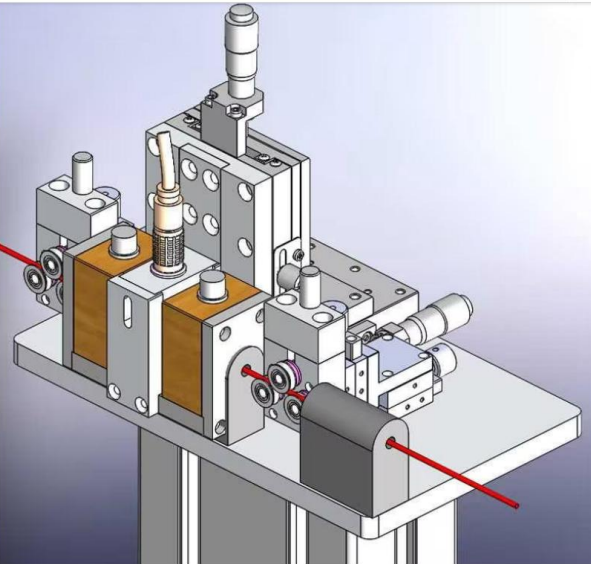
Using the eddy current signal processing method and high-performance DSP algorithm, the NDT wire rope tester detection ability of micro-crack is as high as 0.05mm deep crack.
Using computer digital technology and "digital eddy current detection technology" to achieve high-speed data processing capabilities, detection speed can be reached to 1~500m/min. Technology can effectively suppress all kinds of interference signals. It has waveform, amplitude, phase, X-axis and Y-axis signals.
As one of the leading NDT equipment manufacturers,we adopt professional “digital filtering” techniques to effectively suppress interference signals in the field, ensuring the accuracy and stability of the cable flaw detection detection.
1. LF testing sensitivity
The NDT wire rope tester detects the minimum metal cross-sectional area change and the minimum length of the damage length corresponding to the local damage.
2. LMA testing sensitivity
The NDT wire rope tester detects the minimum metal cross-sectional area change and the damage length minimum size corresponding to the metal cross-sectional area loss.
3. LMA repeatability error
The maximum value of the random error obtained by performing multiple consecutive measurements of the same metal cross-sectional area change in the same test sample under the same test environment and conditions within the instrument range.
4. LMA linearity error
Within the range of the ndt wire rope tester, the metal cross-sectional area of the test sample is linearly proportional to the absolute value of the maximum deviation between the measured curve of the instrument and the calibration curve fitted by the measured value of the cross-sectional area of the metal.
5. LMA error of indication
The value of the metal cross-sectional area loss measured by the instrument minus the actual value of the metal cross-sectional area loss within the instrument's range.
6. LMA linearity error
In the range of the instrument range, under the condition of the length loss of the cross-sectional area of the metal, the cross-sectional area loss of the metal on the wire rope measured by the detector is matched with the value of the loss of the cross-sectional area of a group of wire ropes measured by the instrument. The absolute value of the maximum deviation between the calibration curves.
7. Testing distance resolution
This eddy current tester for sale is capable of detecting the resolved minimum distance.
8. Dual function instrument
The NDT wire rope tester can detect and display changes in metal cross-sectional area loss (LMA) on one channel, and detect and display local damage (LF) on the other channel. The detector recording device can be a computer, graphic recorder or other matches. device.
9. Single-function instrument
The NDT wire rope tester cannot simultaneously detect and display metal cross-sectional area loss changes and local damage, and can only detect and display one of them. The detector recording signal device can be a computer, a graphic recorder or other matching devices.
10. Wire rope electromagnetic tester
The detector principle and composition meet the requirements of the GB/T 21837-2008 standard, and it has a detector for detecting distance display, data storage or recording function.




Detection channel | Single-channel |
Detection speed | 1~500m/min(on-line) |
Frequency range | 100Hz-10MHz |
gain | 0~99dB,step size 0.1dB |
Advanced filtering | have |
High pass | 0.1Hz~650Hz |
Low pass | 1Hz~10000Hz |
Phase rotation | 0-360 ° step 1 ° |
Synchronized alarm output controlled by an internal and external clock |
High precision end and end-to-tail signal removal |
High precision real-time, delayed alarm output |
Fast digital/analog electronic balance |
Memory track delay blanking function |
Real-time impedance plane display |
The instrument a match any probe |
Remote automatic help system |
Computer full digital parameter adjustment |
Non-equal amplitude phase/amplitude alarm domain |
Leave us Message:

